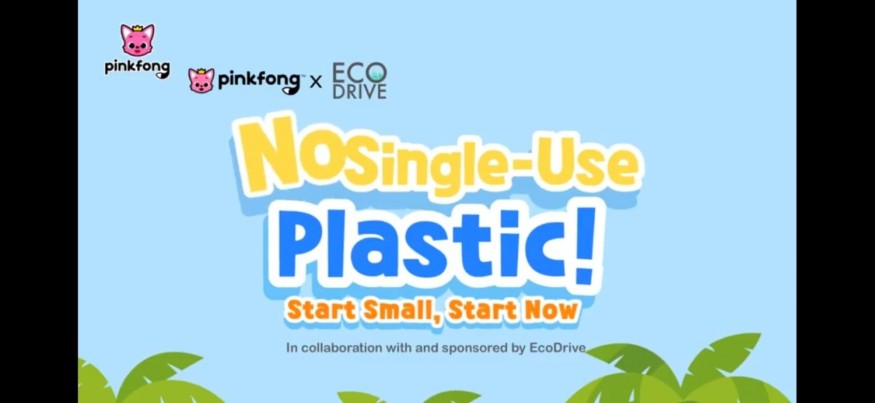
Before 2020 ended, Pinkfong, the company behind the song Baby Shark, partnered up with EcoDrive Hong Kong and released a new rendition of the song Baby Shark. Still, the lyrics are about the harmful consequences of single-use plastics. The song, which is appropriately titled "No More Single-Use Plastic!" to educate young children about how these pollutants destroy the ecosystem.
In the video, baby shark and company showed different types of single-use plastics to cause harm Baby Shark and his friends. The little shark called the people's attention and asked them to consider using these plastics to stop littering and start recycling instead.
The video started with an ominous sight where a sea lion was caught on a fishing net left behind by unrestricted fishing activities. It tracked down back to the ocean, where countless plastics are found floating around along with much more trash in the sea. When the video finally showed the baby shark, he and his turtle friend described the ocean's current condition and how the plastics are making them sick.
As the video continued, it showed what kind of plastics commonly found in the ocean and where they came from. It also showed the grim reality where ocean lives are put at risk for accidentally eating the plastics or if the plastic suddenly obstructed their breathing.
Of course, being primarily targeted to kids, it was not all sad and gloomy. The video also featured different methods of recycling and what alternatives to single-use plastics are.
In a related article, Seafood's Secret Ingredient: Microplastic
Single-Use Plastics
Single-use plastics are any materials made primarily out of petrochemicals (a fossil-based chemical used as a raw material) intended to be used once and be disposed of right after using. They have been commonly used in packaging other forms of goods and supplies. Examples of these are disposable bottles, wrappers, straws, and plastic bags.
Impact of Single-Use Plastics
The accumulation of plastic waste in the environment, not just the ocean, has been the cause of many significant environmental problems like:
- The rising number of microplastic fragments spreading in the ocean killing marine lives;
- The destruction of natural marine habitats compromising the lives of its inhabitants;
- The death of many underwater animals caused by accidental ingestion of plastic objects; and
- The outbreak of plastic wastes on many waterways effectively compromising sources of freshwater.
Alternatives for Single-Use Plastics
There are many alternatives to single-use plastics, things that do not compromise the ecosystem. Some of those are:
- Stainless steel;
- Glass;
- Silicone;
- Cloth;
- Wood;
- Bamboo;
- Ceramics;
- Paper;
- Cardboard and many more.
Those are alternatives for plastic products. However, a quick lifestyle change can also lead to reduced plastic usage. For example, instead of buying bottled water every day, you can opt to use reusable water jugs, bottles, or containers that you find comfortable using. Instead of wrapping it in clingwrap or other plastic wrappers, you can put your foods in plastic or rubber containers. This cannot just lessen the usage of single-use plastics; it can also lengthen your foods' amount of time to remain fresh.
The use of plastic has been deeply ingrained in our lifestyle that many fail to recognize how many other options, some are more comfortable, there are. Sure, it would be impossible to stop plastic production, but lessening it would be a significantly great step in saving the environment.
© 2026 NatureWorldNews.com All rights reserved. Do not reproduce without permission.





